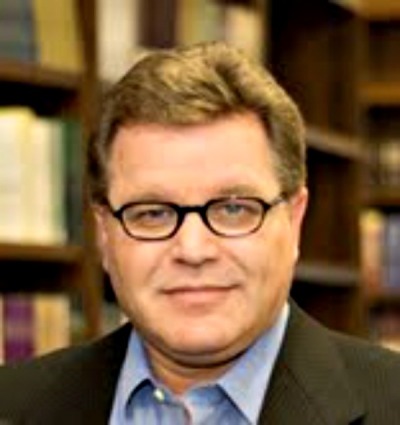Book Review: Os Guinness's Ambitious Plan for a Global Public Square

During the Constitutional Convention many feared that the proposed form of government granted too much power to the federal institution. Tepid supporters and critics, as well as Anti-Federalist opponents, believed the Constitution should have included a list of citizens' rights. Ardent supporters, like James Madison, believed an articulation of rights was a Pandora's box, fearing that every interest group and nincompoop could and would claim a right exclusive to them.
But the practical politicians they were, the founders, in order to get the Constitution ratified in the state conventions, promised a Bill of Rights. The first right is the right of religion. "Congress shall make no law respecting an establishment of religion," they wrote, "or prohibiting the free exercise thereof." The right of conscience and belief is rightly preeminent because it secures all other rights. Without this first freedom there can be no freedom of speech or the press, no freedom to peacefully assembly or petition the government. Civil rights cannot exist without human rights. And human rights cannot exist without religious rights.
But today, religious rights are subject to increasing hostility. Sectarian violence throughout the world, the rise of militant Islam in the Middle East, Europe, and America, and the politicization of the Religious Right in the United States have left many wondering about the wisdom of our first freedom. Os Guinness put it well in The Global Public Square: Religious Freedom and the Making of a World Safe for Diversity: "How do we live with our deepest differences, especially when those differences are religious and ideological, and especially when those differences concern matters of our common public life?"
That's a good question. And one not easily answered, especially on a global scale. However, Guinness offers eight steps in formulating an answer so that "soul freedom"—the rights of secularists and sectarians alike to publicly believe or disbelieve—might flourish worldwide.
While not a utopian—his vision falls short of that—Guinness's proposal for a civil global public square is ambitious. Taken in isolation any one of his eight steps is challenging enough. Taken all together is a herculean task.
That's what makes reading Guinness's well-reasoned and eloquent book so frustrating, not that his plan is unattainable in theory but that it seems unattainable in practice. The crisis of religious freedom is a crisis of leadership, and the crisis of leadership is a crisis of character. Guinness acknowledges this himself. At the close of each chapter he asks:
What does it say to us and our times that the [1948] Universal Declaration of Human Rights could not be passed today? And what does it say of the future of freedom of thought, conscience, religion and belief if it can be neglected and threatened even in the United States, where it once developed most fully—that it can be endangered anywhere? Who will step forward now to champion the cause of freedom for the good of all and for the future of humanity?
These are great questions. And ones Guinness has no answers for; neither do I. Do you?
Rod Dreher, of The American Conservative, has written: "In a time like this, prophets are more important than politicians." Perhaps. We certainly have a prophet in Os Guinness. And though his pronouncement about religious freedom hasn't reached damnable levels, it has reached a level where things are later than we think. "We are frequently told that where there is a will, there is a way," Guinness concludes his book.
In this case there is a way, a way that is sure, clear, constructive and eminently feasible—the logical extension of the highest ideals and most sound political arrangements that brave men and women have pioneered before us. Our question today is a different one: Where there is a way, is there a will? The world awaits the answer to that question.
And that question will have to be answered by politicians (and preachers), not prophets.





















